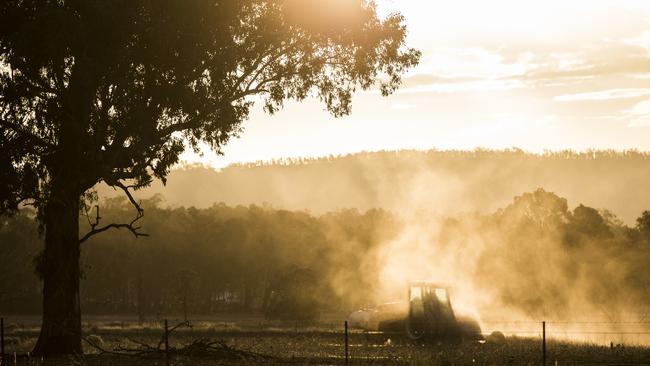
As a result of RPT - levied via a ban on cash franking credits - a staggering 1.1 million elderly Australians are set to lose on average $4000 each year. It’s money few of them can afford.
Add that to higher capital gains taxes and negative gearing and anger in the older age groups of our community is white hot. And when I comment on the subject the reader response is huge.
But the reader response is just as big when I discuss climate change, as confirmed by yesterday’s commentary.
So, I asked Charlie Nelson at Foreseechange - arguably Australia’s top retail trends analyst - what he is seeing on community attitudes to climate.
He brought together four streams of research and discovered that the level of belief in imminent climate change and the need to act is back to the level of the 2007 federal election - the election when Kevin Rudd defeated John Howard in a landslide. The level of belief declined in 2009 and 2010 but has since steadily recovered.
Foreseechange reached its conclusions via four independent tracking surveys - its own research plus the Lowy Institute, the global market research firm Ipsos and the Australia Institute Climate and Energy Program.
There have been three main drivers of climate attitudes since 2005:
- Weather conditions led by variations in temperature and rainfall. The level of belief in climate issues was low in 2010 and 2011 when the millennium drought in south eastern Australia broke. The subsequent increase in temperatures and re-emergence of drought and the extremely hot summer of 2018-19 has lifted the level of belief in climate change;
- Response to the Rudd government carbon pollution reduction scheme legislation which saw Malcolm Turnbull being toppled as leader by Tony Abbott, and increased media coverage of climate change denial. The proportion of adults who denied that the climate is changing abruptly increased from three per cent to 10 per cent during 2009;
- Pope Francis’s Laudato si’ encyclical of 2015 appears to have sustainably lifted the level of belief in imminent climate change and support for action;
The level of belief in imminent climate change tends to decline with age, although the magnitude of differences narrowed in late 2018 as the level of belief among people aged over 65 lifted.
Among people aged between 30 and 64, females have a higher level of belief than males. In 2018 some 60 per cent of adults agreed that global warming is a serious and pressing problem, and that we should begin taking steps now even if this involves significant costs.
Since then the 2018-19 summer broke the mean temperature record, which boosted concern about climate change.
The level of belief in imminent climate change tends to be higher in capital cities than in regional areas, but there is also substantial variation within rural areas.
Foreseechange says the issue of climate change is likely to be as important in the 2019 poll as it was in 2007, given there is a high level of agreement that the federal government is most responsible for taking action on climate change.
But the emotion created by the retirement and pensioners tax, levied by the elimination of cash franking credits, is no less intense.
However only a portion of Australia’s 1.l million elderly people set to be hit have any concept that they are being accused in the 2019 election campaign of being part of a tax system that “dudded” the younger generation.
In fact, many of them still think they are “doing the right thing” by saving for their retirement.
If the ALP wins the election and gains Senate approval for its plan to make them pay the retirement and pensioners tax, they will all then realise that the younger community believes that the older generation were part of a system that “dudded” the younger generation.
They must pay what is arguably a $4000 average fine for the rest of their lives----or at least until they quit the self-managed funds and go onto the government pensions.
Those who did not register for the government pension by last March and have self-managed funds will still lose their cash franking credits--- that’s why it’s called the retirement and pensioners tax.
And there are another 400,000 to 500,000 battlers or so who are also part of the system that “dudded” the younger generation, but their money is in industry or big retail funds. It looked like would escape penalty, but they may also be ensnared.
To his credit Bill Shorten is frank that this is an intergenerational election and that he believes that younger Australians are getting a “dud deal” from a system that is stacked against them.
“There is an intergenerational bias in the taxation system that rewards holders of great property assets, as opposed to people who earn income,” he told The Age in Melbourne.
I am not in the business of forecasting election results, but the Coalition has looked bad on climate and on this issue should be thrashed, as happened in 2007.
If the election is close it will because Australians are horrified at the ALP’s savage attack on the elderly who are not rich, plus all the other taxes.





As we go to the polls two issues will decide the election - the retirement and pensioners tax (RPT) and the dramatic rise in community apprehension about climate.